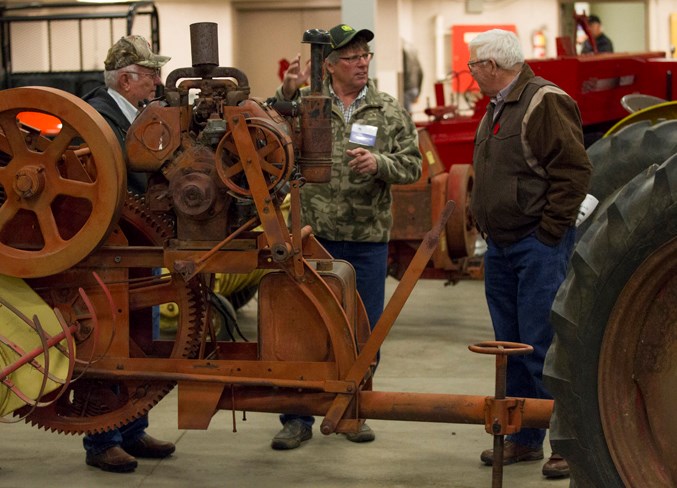The 50th anniversary celebration and reunion of the ag mech program at Olds College was so successful there's already talk about having another gathering --- perhaps in five years.
That's the word from Dan Daley, dean of the college's school of trades.
The celebration and reunion took place Nov. 9 and 10 at the ag mech building on campus.
On Friday night about 150 people attended a social.
"Just kind of (to) get together, reminisce, that kind of thing," Daley says.
On Saturday, starting at 1 p.m., participants were taken on tours of the building, the campus and the college's farm.
A banquet was held in the evening. It included an open mic session where people told stories. A dance followed.
Daley estimates between 225 and 250 people showed up for those events.
"It was very well attended and it seems like everybody had a good time," Daley says.
"It kind of hit the target as far as what we wanted to do. Just to reconnect the alumni with each other and reconnect the alumni with the college as well. And celebrate the 50-year anniversary of the start of the program."
There were lots of changes to talk about.
Daley says there were about 22 students and about half a dozen staff members in the two-year program when it began in 1968.
"Now we have approximately 40 first-year students starting this year with approximately 26 second-years. And we have, at any given time, anywhere from 22 to 25 staff working in the department," Daley says.
One of the most remarkable differences is the way farming technology has changed.
"Nowadays there's a lot more technology in the program as far as it relates to precision farming and the electronics that are on the machines," Daley says.
"Back then, it was very simple machinery; you know, gears, belts, pulleys, bearings. The engines were very simple, transmissions were very simple. Hydraulics were very simple, if they even existed on the machines.
"You look at a modern tractor nowadays and they can have up to 30 computers on each tractor with the full gamut of electronics controlling the engine, the transmission, the hydraulics. Even the lighting and the seat control are electronic nowadays.
"So the technology has just really taken over the whole trade and it's a necessity now for a technician entering the trade to have a good knowledge of all that," he adds.
"We don't teach them everything, but we teach them all the essentials that they're going to need for when they enter into the trade."
Those changes were brought home in an exhibition of old and new farm equipment that attendees could check out Friday night and Saturday.
"So we had antique equipment: tractors and machinery from 1968 and we also had equipment and machinery from 2018. They were sitting side by side in the same lab, so people could do a comparison," Daley says.
"It was definitely 100 per cent a success. We had lots of positive comments about it; a lot of comments saying that they would like to do it again in five years and just do a comparison again and see how everything has progressed within the program," he adds.
"Five years from now things will probably be totally different again. It's really progressing.
"The technology that's being used in agriculture right now continues to advance at a very fast rate -- as it pertains to precision farming and environmental practices.
"Even the emission controls that you find on the machines now, every year there's new advancements to cut down the emissions that are being put out into the environment."
Daley says the social part of the celebrations -- the chance for former students and instructors to visit -- was also a very popular aspect of the weekend.
"We heard a lot of success stories from our graduates about once they had left the program and where they went with their education that they got from Olds College," he says.
"All the way from going to university and carrying on their education to individuals who have gone out and been very successful in the agricultural field with farming tens of thousands of acres."



